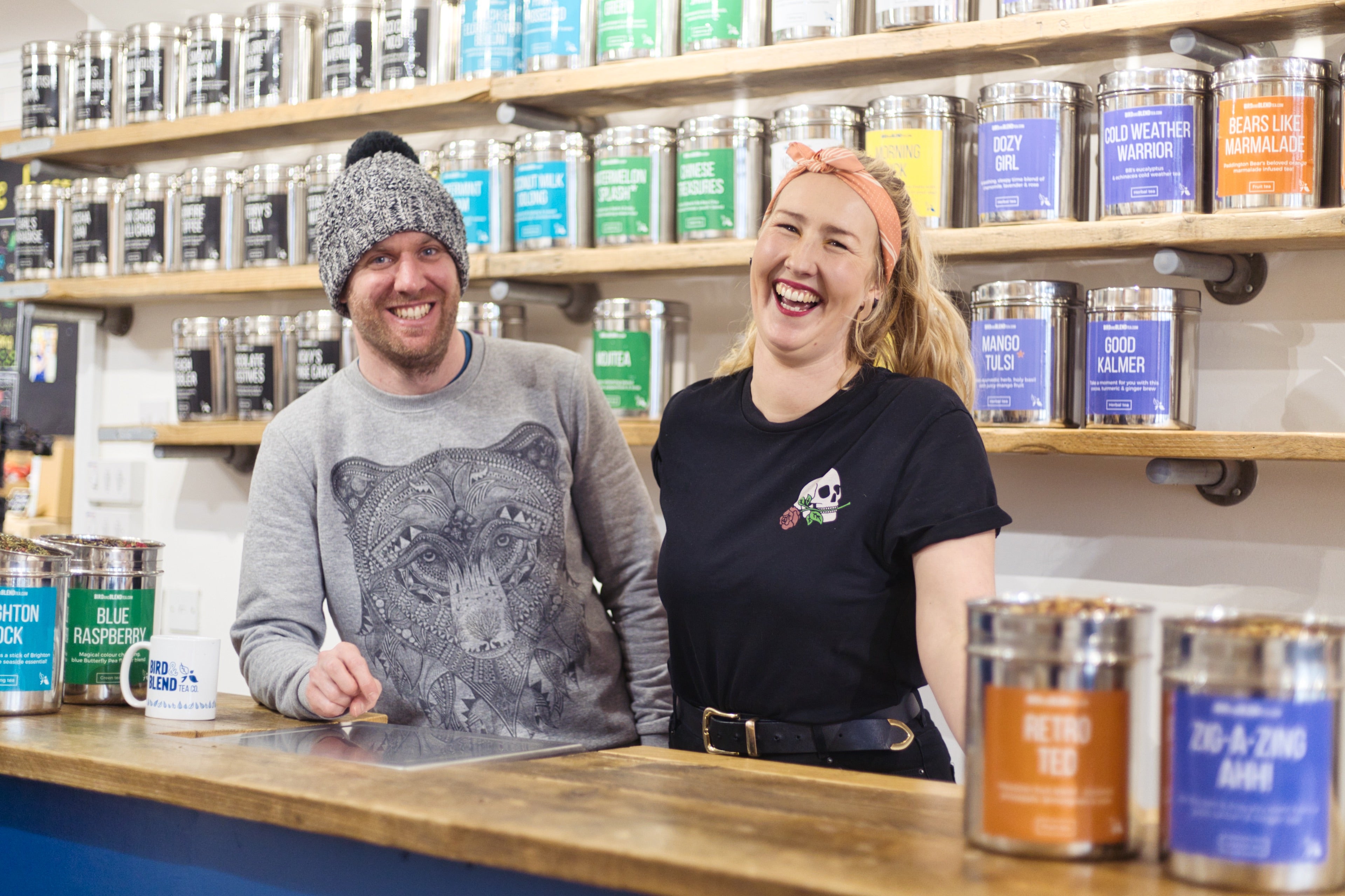How Bird & Blend are reimagining the ultimate British staple of tea
Krisi Smith tells Heather Martin that she didn’t have a passion for tea intially, she just spotted an opportunity and things soared from there


At school in Nottingham, Krisi Smith was perceived as trouble, displaying the classic vices that would later prove to be her greatest strengths: she was independent and strong-minded; she asked too many questions, thought for herself and insisted on doing things her own way. The truth is she liked learning and was good at passing exams, but she was never admitted to the “upper tiers”, nor was she selected as a candidate for Oxbridge. Coming top in her final year was sweet revenge, but not so sweet as building her own business worth around £18 million. You didn’t have me in your club, she thinks as she surveys her empire of 14 retail stores across the UK, but still I have achieved this.
This being Bird & Blend, the award-winning tea mixology company that is “reimagining the ultimate British staple of tea”. It wasn’t that Creative Director Smith had a passion for tea; not back when she started out, at least. It was simply that she saw an opportunity. Tea was “the vehicle” for the kind of business she wanted: people-focused in both directions, while ticking the creativity box for its restless founder. “Who can’t relate to tea?” Smith asks, not needing an answer. “It was a cracking product to build our business around.”
Smith bought her first car when she was 16 years old, for £600, a sixth-hand Mazda painted green for go. “I wanted to escape,” she says. “To be out there in the world.” It was no coincidence that when she slipped a mix tape (actually a CD) into the stereo on her first drive to school, the lead track was Nineties N-Trance single “Set You Free”.
Every penny of that £600 was well earned. Like many young teenagers Smith did babysitting, but unlike most, she also mucked out the local stables, and despite being allergic, the cattery too. At 16 she took jobs at Ikea and B&Q, boosting her income during the summer by helping out on the cashiers’ desk at NatWest: a combination that would see her through sixth form and beyond, when she upped the ante by adding hours as a debt collector by day and a shot girl by night. She didn’t sleep much.
All of which explains how Krisi Smith came to have had 37 jobs by the time she was 24. It wasn’t that she was unemployable, rather the opposite: she’d held down more jobs than most of us have in a lifetime, many of them concurrently. But despite all the hard graft, she still felt underemployed. Or at least undervalued.
Smith is still more impressed by a stint in fast food than a glossy grad scheme, and more likely to recruit potential managers from hospitality than from luxury brands
So how did she get into tea in the first place? She paid her dues working in Liverpool tea bars, which she fled to train as a ski instructor in Canada, only to run out of money and end up selling tea all over again. It turned out North America was streets ahead on blending and flavours, while we were still fixated on Earl Grey and English Breakfast. Where we languished in the chintzy doldrums of elitist nostalgia, they looked forward to a more inclusive future. “No one in the UK was doing tea in a creative way,” she says. “Mixology” was the term Smith chose to conjure up the cool of the cocktail bar.
One day in 2012, in a pub in Canada, Smith and co-founder Mike Turner, then her ski instructor partner, now Managing Director, jotted down their shared vision on a napkin (still pinned up somewhere at headquarters in Worthing) and decided to head home. “No waste” and “Environmental responsibility” were top of the list. They called their fledgling company Bluebird Tea, invoking the “bluebird day” of clear blue skies and sunshine so beloved of ski communities, when businesses and schools close their doors and everyone heads for the hill because this is one day they are absolutely not going to miss. Their business would embrace people’s “needs and dreams and desires”, refracted through the lens of tea.
But when five years later they set about expanding through a crowdfunding campaign, they crashed headlong into copyright issues with a mighty corporation that had the financial clout to take them down. Despite being a fighter by nature, stubborn and mindful of protecting her existing employees, Smith decided against making it a David and Goliath story, and welcomed instead the opportunity for a rebrand. “How do you see us?” she asked the “teabird” community on Facebook, and the answer was always a variation on “blend”. Thus Bird & Blend rose from the ashes of Bluebird, retaining the idealism of the original but twice as strong, thanks to the turbo-charged power of alliteration and the ampersand. “The ampersand is important,” Smith says. “It equals connection, and connecting with others is a massive part of our ethos.”

Bird & Blend have over 200 teas in their back catalogue, including established favourites such as Gingerbread Chai, Mojitea, Earl Grey Creme, Chocolate Digestives and Strawberry Lemonade, but the drive is always towards innovation. As chief mixologist, Smith monitors food trends and runs focus groups, but ideas can come from anywhere, like the time she was inspired by Pantone’s 2018 colour of the year, resulting in Ultra Violet, which brewed purple and tasted like Parma Violet sweets. She has been working on Christmas since February, seeking to push the boundaries beyond Mince Pie, Christmas Cake and Irish coffee with Snowball, Salted Caramel Lebkuchen, Fairy Tale of NY, and this year’s special, Peppermint Hot Cocoa.
Pushing boundaries is what Smith does. When she left school she bought a round-the-world ticket and took off for a year. She motorbiked through Thailand and went diving in Egypt. She trekked to Everest Base Camp in Nepal. She climbed K2. She volunteered in South Africa and worked her way up the east coast of Australia in a van. It was part wanderlust, part flight, but at some point she applied to Durham, where on her return she did a degree in Politics and Psychology. For different reasons, she found it just as alienating as school. And whereas at school she had found solace in the saxophone, playing in the jazz band, the concert band and even the marching band, at university the silver lining was learning how to row. It seemed like everyone else had been rowing since they were seven or eight, but Smith soon beat them at their own game, going on to captain the club and lead the women’s team to Henley.
Given Smith’s taste for the great outdoors, it’s hardly surprising that zero waste, green energy, and maximum recycling are built in. “We were one of the first to introduce plastic-free teabags,” she says. “And the first to use fully biodegradable single-serve sachets.” They’ve just spent 18 months developing a sachet that has a long enough shelf life to seal in the oils and flavour of the product but a short enough shelf life to break down completely once discarded.
Smith is still more impressed by a stint in fast food than a glossy grad scheme, and more likely to recruit potential managers from hospitality than from luxury brands with a superficial affinity to her own. “I know how hard they’ve worked,” she says. “I know they can think on their feet. I know they’ve got grit. Yes, we’re a premium tea brand with a great quality product. But we’re not posh.”




Join our commenting forum
Join thought-provoking conversations, follow other Independent readers and see their replies
Comments